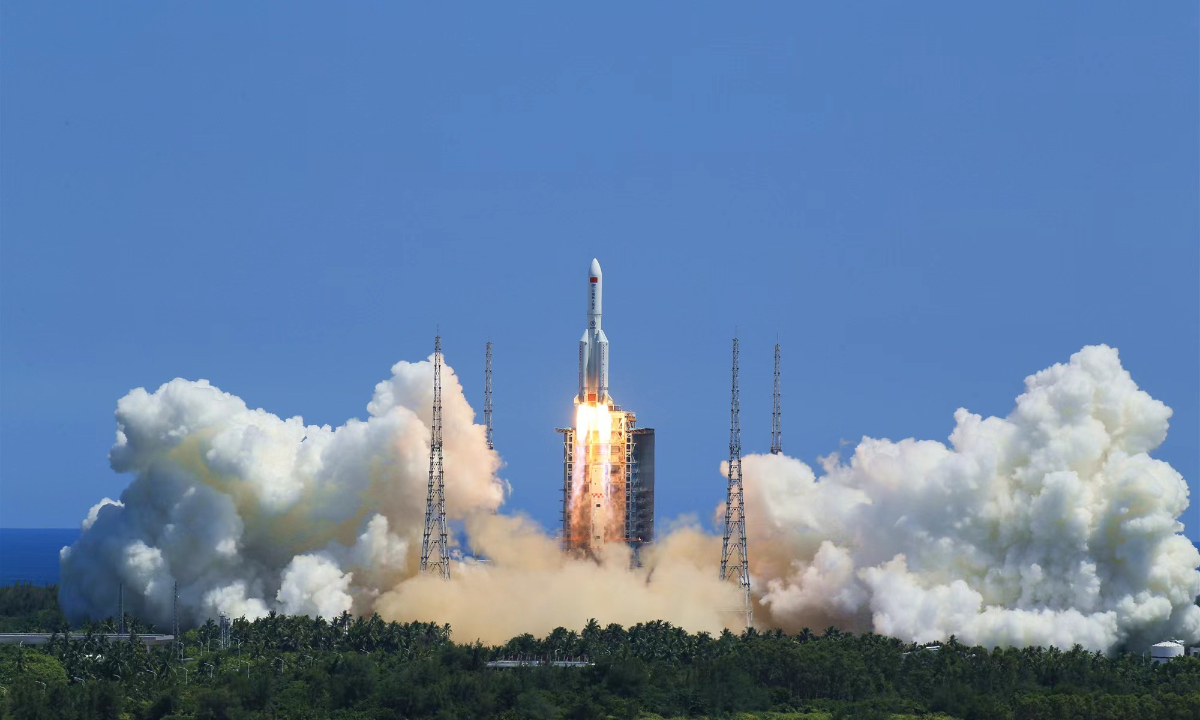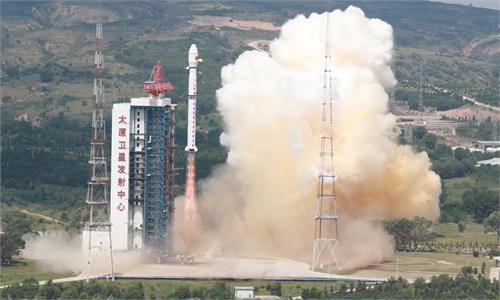China has always followed intl norms and laws on space activities, including the disposal of rocket debris: Chinese FM

China launches Wentian lab module for space station. Photo: Huang Guochang
As the world cheers the successful launch of the Wentian laboratory module to the China Space Station, Western media did not let go the opportunity to smear China's aerospace achievement by hyping the claims of the space debris allegedly part of the giant heavy lift Long March-5B, the carrier rocket, which delivered Wentian to orbit, is supposedly falling back to Earth in an "uncontrolled descent."
In response to the accusations, Chinese Foreign Ministry spokesperson Zhao Lijian said on Wednesday that China has all along pursued the peaceful use of outer space in accordance with international law and the international customary practice.
"According to information at hand, this rocket is designed with special technology, and the overwhelming majority of its components will burn up during the re-entry into the atmosphere. The probability of this process causing harm to aviation activities or to the ground is extremely low," he stressed.
CNN reported on Wednesday that the remnants of the massive Chinese rocket are expected to fall to Earth early next week, citing the US Space Command, which is tracking the rocket's trajectory and predicted the reentry could happen around August 1.
"Its job completed, the rocket has gone into an uncontrolled descent toward Earth's atmosphere and it is not clear where it will land. The uncontrolled descent marks the third time that the country has been accused of not properly handling space debris from its rocket stage," the report said.
Jonathan McDowell, an experienced tracker of these events at the Harvard-Smithsonian Center for Astrophysics, told media that Americans "do a rather better job of upper stage disposal, and China on average a worse one."
Responding to these claims, Zhao noted that it is customary international practice for rockets' upper stages to burn up in the Earth's atmosphere. With regard to the upper stage of the Long March-5 rocket, the competent authorities in China are closely tracking it and will release timely information on the website of China Manned Space Agency.
Zhao stressed that since the development stage of China's space engineering, it has incorporated post-mission disposal requirements for carrier rockets and on-orbit satellites, including on debris mitigation and de-orbit measures.
China participates in multilateral cooperation mechanisms and carried out international cooperation through joint testing of reentry objects, data and information exchange, and sharing of reentry predictions, Zhao said.
Song Zhongping, a TV commentator who closely follows China's space program, told the Global Times that "what is behind such smears is total jealousy."
The US is running out of ways to stop China's development in the aerospace sector, so smears and defamation are the only things left, Song noted.
The Wentian, the world's heaviest single-module spacecraft in active service, docked with the orbiting Tianhe core module on early Monday following a successful launch.
With all-inclusive systems and functions on the Wentian, the lab module has been regarded by observers as a "mini space station." The Wentian has paved the way for the future expansion of the space outpost, experts said, adding that in the future, foreign lab modules or manned spacecrafts could dock at the T-shape structure.
Global Times

